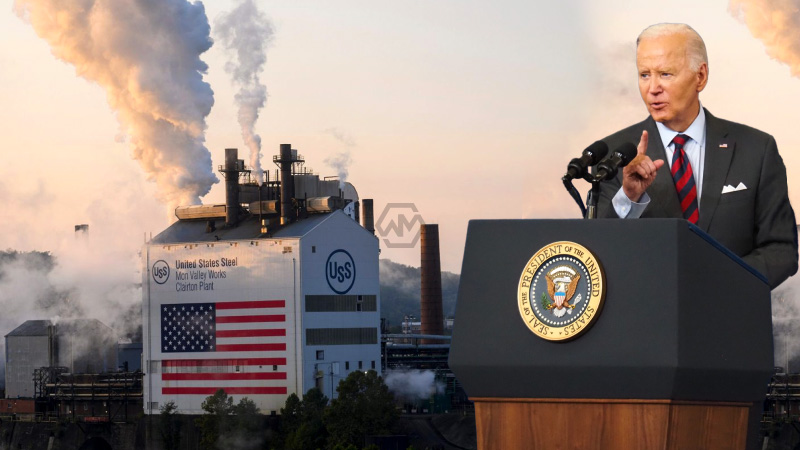- President Biden blocks Nippon Steel’s $15 billion bid to acquire US Steel, citing national security and union opposition.
- The decision prevents the creation of the world’s third-largest steelmaker, preserving US Steel’s domestic role.
- Labor unions and bipartisan political support influenced the rejection of the merger.
President Joe Biden’s rejection of the Nippon Steel-US Steel merger underscores concerns about foreign control over critical industries. The merger, valued at $15 billion, would have created a global steelmaking giant, but it faced scrutiny from the Committee on Foreign Investment in the United States (CFIUS).
The panel highlighted risks to the supply of steel essential for defense, infrastructure, and agriculture. Bipartisan political opposition and strong advocacy from labor unions solidified the case against the acquisition.
National Security and Labor Concerns Halt Nippon Steel-US Steel Merger
This decision reflects broader efforts by the Biden administration to prioritize domestic manufacturing and economic security. US Steel, an iconic American company, retains its independence, ensuring continued domestic production capacity and safeguarding critical supply chains from potential foreign influence.
Labor unions were a key factor in this outcome. US Steel’s historical ties with American workers and unions meant the deal faced strong opposition from organized labor, which holds considerable sway in policymaking. This alignment of political and labor interests is rare but significant in safeguarding industrial jobs and domestic control.
The global steel market could have seen significant shifts had the merger gone through. As the world’s third-largest steelmaker, the combined entity would have posed a challenge to competitors like China’s Baowu Steel and Luxembourg-based ArcelorMittal. The decision ensures that US Steel remains a robust standalone player in this competitive landscape.
This case sets a precedent for how future foreign investments in strategic industries may be handled. Companies looking to acquire US assets in critical sectors might need to reconsider their approaches, as national security and labor dynamics increasingly influence regulatory outcomes.
President Biden’s decision to block the merger reflects a commitment to protecting strategic industries, domestic jobs, and national security, setting a powerful regulatory precedent.
“National security is the first duty of government.” — Theresa May



